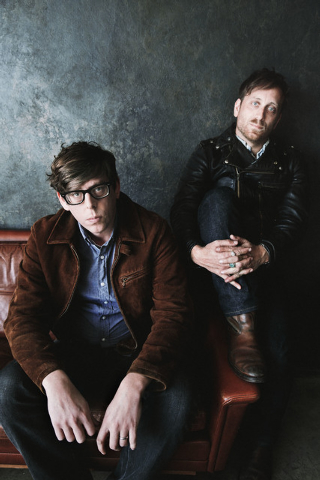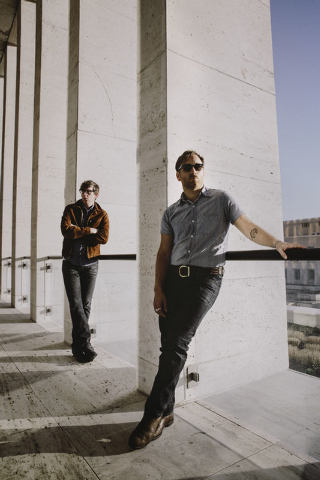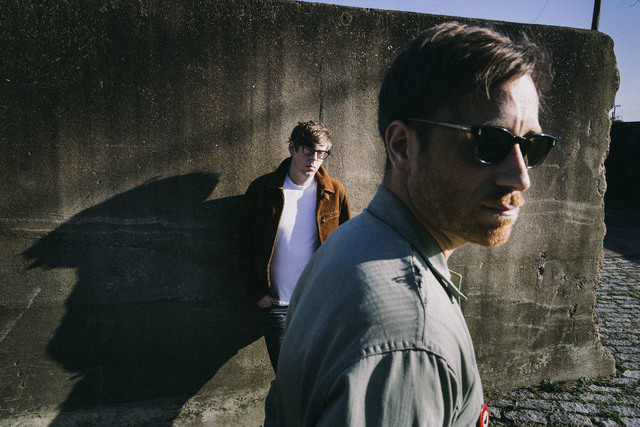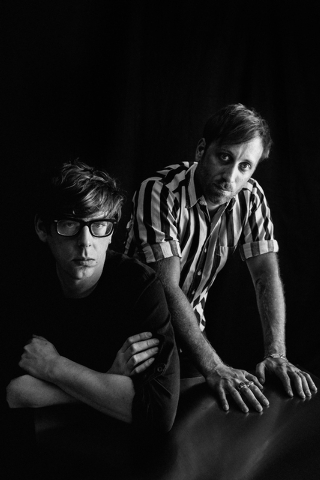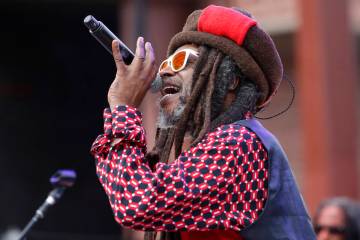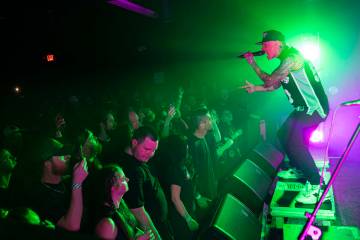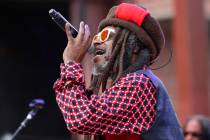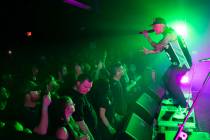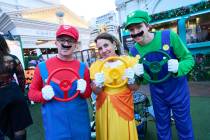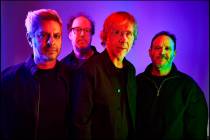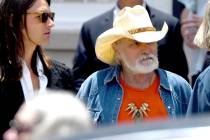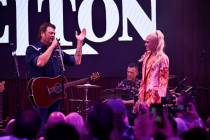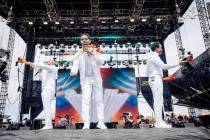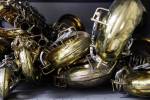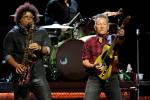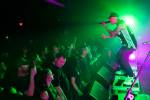Black Keys playing Cosmo show
The first time I met Patrick Carney, he succinctly distilled the essence of his hometown — and by extension, himself.
“You can’t take yourself seriously when you’re from a town like Akron, (Ohio), because you spend all your time making fun of it to be entertained,” he said from a diner in said city. “When you grow up here, you have to have a hobby, and you have to know how to make things fun that aren’t supposed to be fun.”
This principle would guide Carney well as he traveled a long, winding road to becoming a rock star, an occupation equally posited on glory and tedium.
This was February 2002, and I wasn’t interviewing Carney about The Black Keys, the duo in which he’d become one of rock ’n’ roll’s most recognizable drummers and among its best quotes, because they weren’t really a thing yet — at least not publicly.
They had yet to play a show.
That would come a month later.
Instead, I was meeting up with Carney to talk about Churchbuilder, a really good, left-field synth pop group in which he played guitar.
At the end of the interview, done for a Cleveland alt-weekly I was working for, he gave me a CD-R of songs from another project he was involved in, these raw, elemental blues ragers, all hormonal and hell-bent.
These tunes would officially be released later that spring on The Black Keys’ debut, “The Big Come-Up.”
That summer, I’d meet Carney’s partner in the band, singer-guitarist Dan Auerbach, for an interview on the porch of the inner-city Akron home they shared.
It looked just like the Keys sounded back then: rough, ramshackle, very lived-in.
From the get-go, it was clear that these two were good foils for each other: Auerbach, quiet, yet focused and intense; Carney, smart, sardonic and voluble.
More importantly, they truly lived their music.
Auerbach shared stories of traveling to Greenville, Miss., to track down blues cuss T-Model Ford, whom he found and befriended. He’d slept on the floor of Ford’s trailer and played juke joints with the now-deceased blues great, learning less about music than how to carry himself, how to walk with a swagger.
Carney, too, seemed like a natural music lifer.
He’s the nephew of Ralph Carney, an accomplished saxophonist best known for being a member of one of Akron’s most celebrated bands, arty new-wavers Tin Huey, as well as his work with Tom Waits and plenty others.
Music was practically the younger Carney’s birthright.
Together, Carney and Auerbach hit it hard, cutting three albums in as many years, following their debut with 2003’s “Thickfreakness” and 2004’s “Rubber Factory,” all of them self-recorded and produced.
Each album gradually expanded their base and was well-received critically, but still, these two lived on the road, barely scratching out a living, and their current success was hard to foresee at the time.
Still, they kept at it, and it was these hand-to-mouth early years that made the duo what they are today.
Their sound evolved in the crucible of tiny rock dives, cramped vans and basement studios.
They took the long route to arena-headliner status, a circuitous path few travel any more — when was the last band to make the jump from clubs and theaters to sheds and large halls six albums in, which the Keys did with 2010’s “Brothers”?
But the reason it took them so long is the same reason they made it here in the first place: to be able to create music rich in life experience, the kind of songs that feel like an authentic expression of a given emotion at a given time, they had to first go out and live their lives, day by day, city by city, figure out who they were both as musicians and men.
This is why their albums have steadily grown more uninhibited sounding and different from record to record, why their influences have become much harder to pinpoint.
Nowadays, they don’t sound like anyone other than The Black Keys, really.
They got there the hard way.
To wit, flash back to the last time I met up with the Keys, in June 2003, at a show in Columbus, Ohio. They were on their biggest tour up to then, opening for Dashboard Confessional and Beck, who handpicked the Keys to join him on the road.
It was a tour meant to be done by bus, with long drives between cities.
The Keys were still traveling by van, driving themselves gig to gig.
The day before, they had been in Atlanta, nearly 600 miles away, and had to pull an all-nighter to make the show.
“I don’t think it’s possible to really get used to this,” Auerbach said with a sigh before taking the stage, looking as if he could have slept from then until now. “It’s insane. We’re exhausted.”
Eleven years later, he’s no longer living that lifestyle — but it’s still living in him.
Contact reporter Jason Bracelin at jbracelin@reviewjournal.com or 702-383-0476. Follow on Twitter @JasonBracelin.
Preview
The Black Keys
9 p.m. Nov. 8
The Chelsea at The Cosmopolitan of Las Vegas, 3708 Las Vegas Blvd. South
$94.35-$152.95 (800-745-3000)



